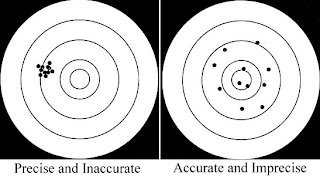Enticing
as it may be, “following you passion” might not ultimately leave you satisfied.
It sounds pretty simple to make a career out of what you love: reflect for a
bit, then aim for a job that matches your interests. Why, then, do some people
end up loving what they do while others don’t? I think it has a lot to do with
the fact that it’s hard to get good at something, and it’s probably not going to
be much fun until you’re at least decent. It takes persistence. You can’t
figure it out in the abstract or plan in advance. (I’m not gonna lie; this is
truly tragic for those of us who love planning…)
On some level, it reminds me of how “love at first sight” turns out not to be a
winning strategy for finding a lasting relationship. It takes time to get to
know a person, just as it takes time to get good at your job. It’s tricky to
untangle whether you get good at things you love or whether you love things you’re
good at.
And what if I want it now?!?
Be
inspired by those around you, continue learning, and develop new skills. I like
Cal Newport’s writing about the importance of cultivating “rare
and valuable” skills. If your skills are in demand, you can use them to leverage
your career trajectory. Then, once you have more control, you have a say as to
how to lead a “passionate life” in the more general sense. For many people,
their primary passion might not even be directly related to a career path. I’m pretty
sure that’s true for me; career accomplishments and academic achievements won’t leave me
satisfied if I don’t also have friends and family around me. I’d venture a
guess that – deep down – this is the case for most people. In that light, it
makes sense to strive to get good enough at something that you’re then able to
get at traits in life that matter to you.
Just keep swimming, just keep swimming…
It
takes persistence. Like, a LOT of persistence. You have to take your turn doing
the shitwork – the organizing, memorizing, charting, pipetting, surveying, etc.
In any field, it’s going to take some time to develop a niche.
What we do for our work might not be that
important, though. Don’t get me wrong, I think you do have to be interested and excited.
I think you need to be able to envision a future, have some genuine enthusiasm,
and come up with general goals in that field. Realistically, though, most of us
have multiple interests. How do you decide whether to go to med school or law
school or join the Peace Corps?
Good enough is good enough
At
a certain point, the right decision is to make
a decision. I’m often absurdly indecisive even about inconsequential,
day-to-day things (you know the type: where to go, who to call, what to bring).
A friend’s recent advice really stuck with me, though. She reminded me that we
are reasonable people and the simple fact that we’re debating means there are
multiple good options. If something was clearly wrong, we wouldn’t be seriously
considering it, right? Perhaps that’s a little presumptuous, but hopefully it’s
often true. At the very least, I think any of those “wrong” choices we
contemplate are usually ones that we can’t know
are wrong until we try them…and that’s part of life, yeah? You can’t win ’em
all.
It’ll
take a while to develop “rare and valuable” skills – even longer than I thought
it would. Luckily, there are far worse things than another decade of
studenthood. We’re in the right place for now: friends who are like family and
peers who are deeply inspiring. We’ll get there. We’ll be useful one day. And
it’ll be awesome.












